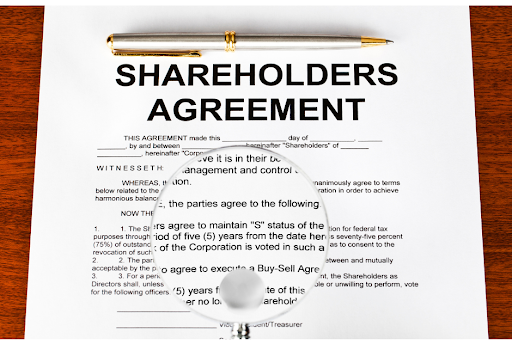
Family businesses start off with a great “family spirit”. However, the ownership and the family business are not as stable for eternity as presumed.
Business growth and family growth increase the risk of conflicts.
Over the years due to increasing family complexities and business complexities, the disputes become acrimonious and difficult to resolve due to the personal relationships among the family members.
When the business is not progressing harmoniously, through a collective decision-making process, it’s the Shareholder’s Agreement, which is the referral document and written agreement between the shareholders, which helps sort out the issues effectively.
The shareholder’s agreement establishes a framework for a fair relationship in the business and sets out the rights and obligations of the shareholders.
It gives clarity to the shareholders as to how the business will operate.
The shareholder’s agreement gives a structure, which has to be adhered to by all the shareholders and thereby resolve the disagreements before they turn into conflicts.
A Shareholders agreement of a family business will have several provisions in place for maintaining harmony within the family business and ensuring its continuity for generations.
The Shareholder’s agreement will:
There is no standard format for a shareholder’s agreement. It can be either in brief or in as many details as possible, depending upon the circumstances and needs of the shareholders and the demands of the family business.
There are many different provisions that can be included in a Shareholder’s Agreement. Usually, the content of the Shareholder’s Agreement is as follows:
These clauses help to set up the right framework for running the family business smoothly.
Family businesses face several challenges arising due to disagreements leading to conflicts.
The most common challenges in family businesses without a Shareholders Agreement are:
A Shareholders Agreement can help resolve the challenges in the family business, by documenting the framework and shareholding policies for the family business
The shareholder’s agreement is not only important for running the day-to-day operations of the business but also for ensuring that the family businesses last for generations.
The shareholder’s agreement clearly defines and protects: Share
Ownership of the business is important. The allotment and sale of shares can be an impugnable issue in any business. Without clear policies about the sale of shares, any shareholder is free to sell the shares to outsiders and thereby risking the ownership of the family business. Having a well-documented mechanism, whereby the shares for sale are first offered to the other shareholders can ensure the ownership of the family business remains within the family.
Minority shareholders have little say in the business and feel threatened, which leads to internal conflicts. The shareholders’ agreement, along with an employment contract for those minority shareholders acting as directors, gives great clarity in the routine operating roles and responsibilities of each family member. Also, the major decision-making gets streamlined through an established process.
The Shareholder’s Agreement serves as a great mechanism for succession planning. In the event of the sudden demise of a shareholder, the distribution of shares and responsibilities can be debatable, painful, and quite stressful.
Provisions can be made in the Shareholders Agreement to address such situations and thereby maintain harmony within the family business.
ADDVALUE is one of the leading Family Business Advisors assisting family members in business to discuss, agree, and document their Shareholder’s Agreement, under the guidance of expert Family Business Consultants.